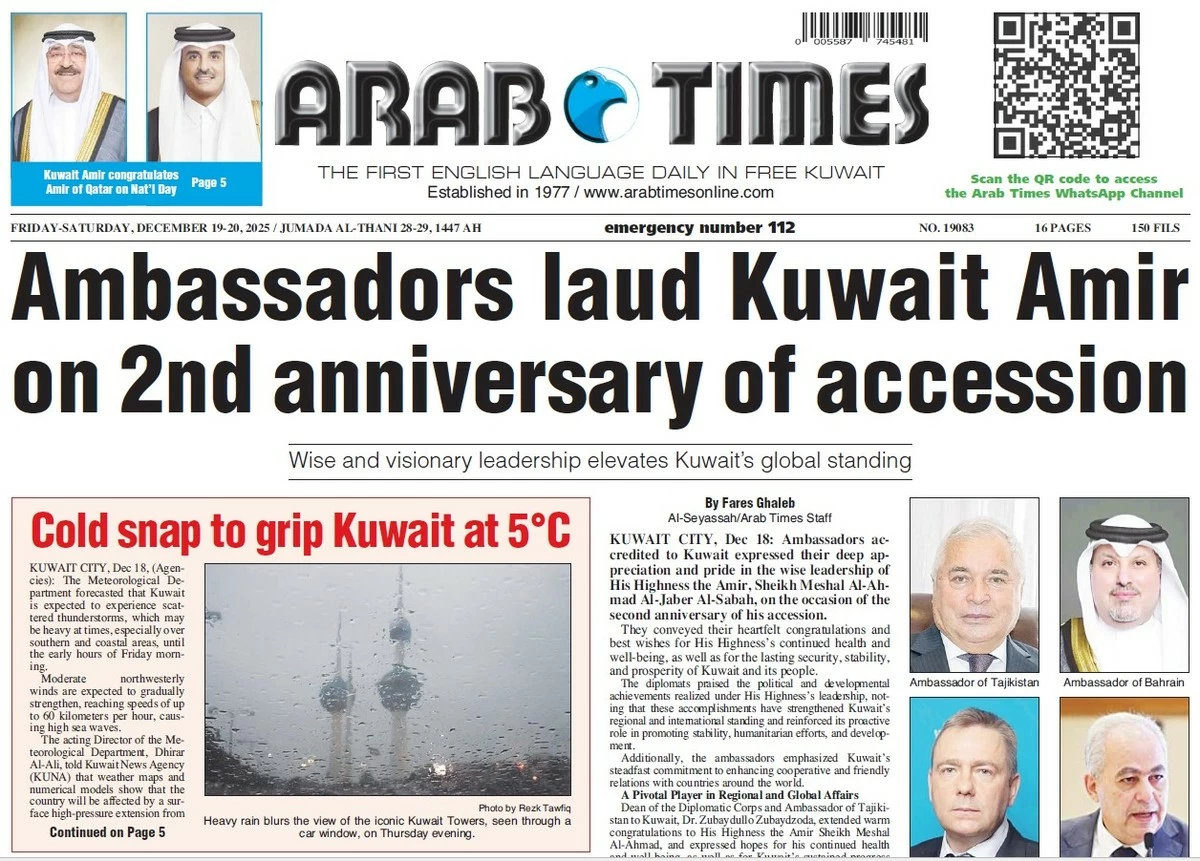04/11/2021
04/11/2021
KUWAIT CITY, Nov 4: During a meeting on Thursday, which was presided over by the Minister of Commerce and Industry Dr. Abdullah Al-Salman, the Board of Directors of the Public Authority for Manpower (PAM) approved the cancellation of Decision No. 520/2020, which bans the issuance of work permits for expatriates who are above the age of 60 years and hold educational qualification of high school certification and below.
This is in confirmation of the report published in the latest editions of the Arab Times and Al-Seyassah newspapers regarding the issuance of directives from high-level authorities in the country to expedite the conclusion of this matter as soon as possible. However, despite the outcome of the meeting, PAM has decided to maintain “incomprehensible or unjustified silence” by not issuing any official statement until the time of the publication of this news.
According to sources from PAM’s board of directors, the board has adopted a new decision to allow the renewal of work permits for this segment of expatriates for an annual fee of KD 500, in addition to the need for a private health insurance policy.
Regarding the cost of health insurance to be imposed, the sources said, “A study was discussed during the meeting, which determines the range of this insurance to be between KD 500 and KD 700, depending on the health status of the expatriate worker, the level of his physical fitness, and whether or not he suffers from any chronic diseases or has risk factors for injury.” They highlighted that the vote on the new decision was based on approval from five members of the board, while four members preferred to retain the work permit renewal fees as it is (before the KD 2,000 recommendation) and instead impose a symbolic fee. However, the majority agreed on a fee of KD 500 for work permit renewal of this category. The sources said they expect the implementation of this decision to start next week after it is officially issued by the authority, adding that it will remain under the microscope during the next stage in order to amend it if necessary.
Will the health insurance exceed KD 1,000?
The Minister Al Salman earlier had several meetings with a group of health insurance companies to discuss the insurance policy that suits the capability of low, middle income owners. The companies will have to cooperate and guarantee 65,000 expats who have reached the age of sixty and are currently covered by the decision to obtain private insurance.
Three categories excluded from this decision
1 - Children of Kuwaiti women and their husbands
2 - Palestinian nationality holders
3 - Born in the State of Kuwait
Policy
Meanwhile, the sources indicated that the Union of Insurance Companies is in the process of developing a comprehensive study on the health insurance policy for expatriates on whom the “60-years decision” applies in order to determine the value of the insurance and the volume of its coverage. They explained that the study will be submitted to government agencies within a week for agreement and approval. Between fixing the price of the policy and setting price margins between companies, the union is keen about adopting the best policies that would enhance competition between companies and prevent monopoly.
Although the study has not determined the cost of the insurance policy yet, initial estimates of the cost range between KD 500 and KD 700. Those targeted by the decision consider the new decision as positive, albeit below the level of ambition. They said, “The board apparently canceled the decision to ban the issuance and renewal of work permits for this category.
However, it practically kept it but in a new form, not far from the recommendation that was put forward in the past to impose renewal fees of KD 2,000, knowing that only expatriates with large salaries, who can pay the high cost, will benefit from it. The majority who receive low salaries will not benefit from it, as it will be difficult for them to pay this amount annually, and they will eventually have to leave the country, which means that the problem remains.” It sent a message to the Kuwait Chamber of Commerce and Industry to respond to its demand, but in return it reflected the insistence of the majority of the board of directors of PAM to impose pressure on this category of expatriates in order to force them to leave! By Najeh Bilal and Fares Al-Abdan Al-Seyassah Staff and Agencies


